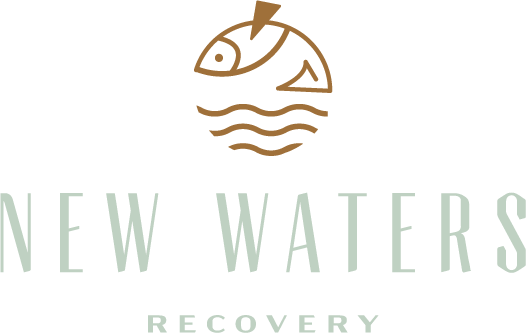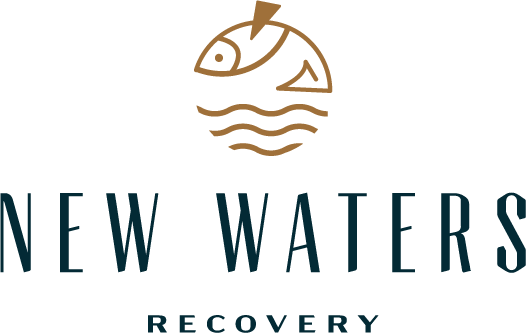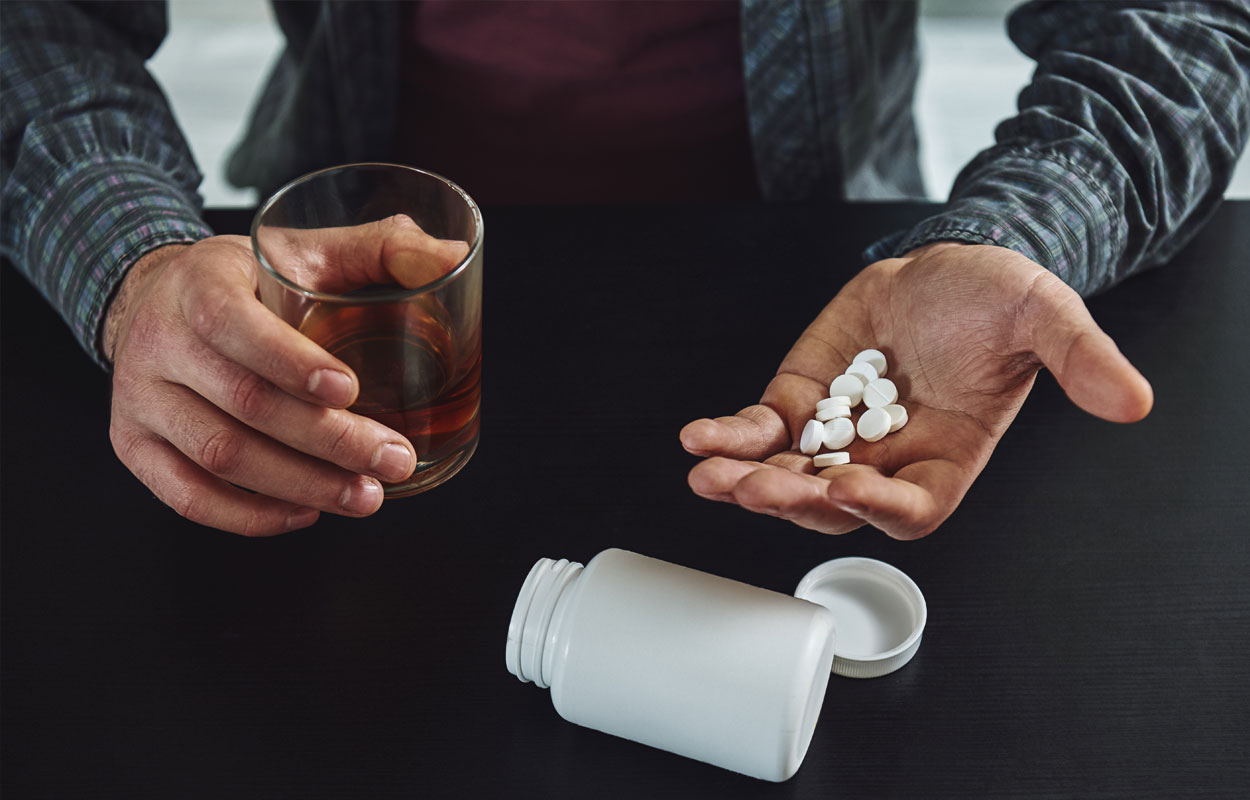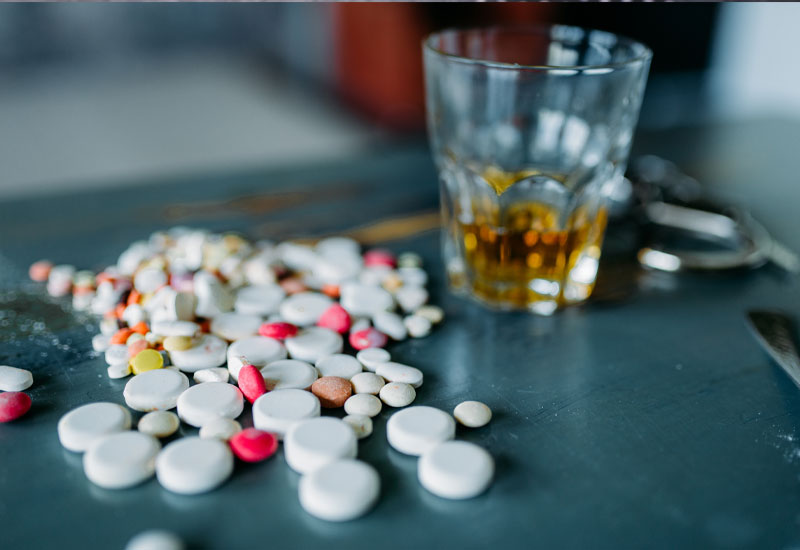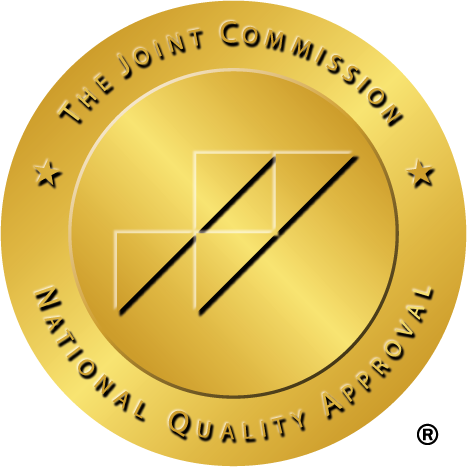Table of Contents
Key Points
- Adderall is a stimulant medication that’s used to treat attention deficit hyperactivity disorder (ADHD).
- There are several potential drug interactions for Adderall, including alcohol.
- Alcohol and Adderall should never be combined because of the risks of worsening side effects or complications.
Adderall is a prescription stimulant medication that’s used to treat the symptoms of attention deficit hyperactivity disorder (ADHD), such as inattentiveness and impulsivity. Like other drugs, Adderall has side effects, risks, and drug interactions, including a potentially dangerous interaction with alcohol.
Learn about Adderall and alcohol drug interactions, the potential risks and safety concerns, and how to keep yourself safe on this medication.
What Is Adderall?
Adderall is a central nervous system (CNS) stimulant drug that’s used to treat the symptoms of ADHD, such as impulsivity and inattentiveness, and narcolepsy. It contains amphetamine and dextroamphetamine in a combination drug that work together to relieve symptoms.
Because of the stimulant effects, Adderall has a risk of misuse, abuse, and addiction. In addition to its use for ADHD, people may misuse Adderall as a weight loss aid, study aid, or for recreational effects. According to the 2021 National Survey on Drug Use and Health, 3.7 million people reported misusing prescription stimulants like Adderall in the past year in 2021.[1]
Adderall and Alcohol Drug Interaction
Adderall and alcohol can be a dangerous combination, but it doesn’t always happen intentionally. Some people may drink alcohol while taking Adderall without realizing the risks because they have a prescription and alcohol is legal. However, some people intentionally mix alcohol and Adderall to enhance the effects of each drug.
Regardless of the reason, Adderall and alcohol should never be combined. Adderall is a CNS stimulant and alcohol is a CNS depressant. Contrary to popular belief, these drugs won’t cancel each other out. Instead, one could mask the effects of the other.[2] Instead, it’s possible to take too much of one or the other, such as drinking more alcohol because you don’t feel the effects.
Mixing Adderall and alcohol can have other adverse effects, including dehydration, hyperthermia, cardiovascular issues, kidney or heart failure, or an increased risk of overdose. The mind-altering effects of both drugs can cause you to engage in dangerous activities you wouldn’t while you’re sober, such as driving under the influence.
Adderall and alcohol isn’t safe for anyone without a doctor’s recommendation, but the risk is increased for some people. Generally, people who don’t metabolize alcohol as efficiently, such as older people, women, or people with liver problems, are at an increased risk of dangerous interactions. When alcohol isn’t metabolized efficiently, it can reach high concentrations in the body and increases the potential interaction with Adderall.
Overdose Risk with Adderall and Alcohol
There’s a higher risk of overdose when you take Adderall with alcohol. The symptoms of Adderall overdose may include:[3]
- High blood pressure
- Irregular heartbeat
- Rapid respiration
- Confusion
- Panic
- Stomach cramps
- Nausea
- Vomiting
The symptoms of alcohol poisoning (toxicity) may include:[4]
- Decreased heart rate and breathing
- Bluish skin and lips (cyanosis)
- Confusion
- Vomiting
- Seizures
An overdose on Adderall or alcohol is a medical emergency that requires intervention. If you suspect someone has overdosed on Adderall, alcohol, or another drug, call 911. Wait with the person until help arrives.
How to Avoid Possible Interactions with Adderall and Alcohol
Drinking alcohol while taking Adderall should be avoided. Even if you’re on a low dose and you’re only planning to have a few drinks, you don’t know what the effects may be. You may not have any adverse effects with Adderall or alcohol on their own, but using them together can have unpredictable interactions. Don’t mix Adderall and alcohol unless your doctor tells you it’s safe to do so.
If you stop taking Adderall, it’s best to avoid alcohol consumption until your doctor says it’s safe. Drugs take some time to eliminate from your body after the last dose, and it can vary by the dosage, the length of use, and individual factors. Immediate-release Adderall stays in the system for 4 to 6 hours in general, but extended-release Adderall can up to 24 hours to eliminate.[5]
If you’ve drunk alcohol while taking Adderall, seek medical attention. You may not experience any side effects of complications, but the alcohol can reach higher concentrations that can cause dangerous interactions.
Adderall Dependence and Abuse
Taking Adderall for prolonged periods or at high doses builds tolerance and dependence quickly. Tolerance occurs when your body gets used to the drug and needs higher or more frequent doses to achieve the same effects. Over time, this leads to dependence, which means the body is accustomed to the presence of the drug and needs it to function. If you stop taking it suddenly, uncomfortable withdrawal symptoms may occur.
If you want to stop taking Adderall, it’s important to talk to your doctor about how to do so safely. Depending on the dose and duration of use, you may need a taper schedule to gradually wean yourself off Adderall and reduce the risk of withdrawal symptoms. You shouldn’t try to taper your dose yourself. Talk to your doctor about the safest option.
Treatment for Adderall and Alcohol Addiction
Both Adderall and alcohol have the potential for abuse and addiction. This is different from the dependence that occurs with prolonged use of Adderall, which can be managed with a taper schedule. Addiction is a behavioral issue characterized by a compulsive need to continue using a drug despite the problems it causes.
Alcohol can also be addictive and has intense and potentially life-threatening withdrawal with symptoms like seizures and delirium tremens (DTs). Quitting alcohol on your own isn’t recommended, as you can experience these dangerous complications without medical support.
Whether you’re struggling with an addiction to Adderall, alcohol, or both (polydrug abuse), it’s best to seek professional help and support. Medical detox is often the first step and provides a medical team to manage withdrawal symptoms, supervise a taper schedule, administer medications as needed, and prevent life-threatening complications.
Detox can offer stabilization and a strong foundation, but it’s not enough to treat the behavioral aspects of addiction and mental health to lay the groundwork for lifelong sobriety. Once detox is complete, it’s important to transition into the next step of treatment with inpatient or outpatient addiction treatment programs. Your treatment will be individualized but may include a combination of group counseling, individual therapy, and behavioral therapies like dialectical behavior therapy (DBT) and cognitive behavioral therapy (CBT).
Avoiding Interactions with Adderall and Alcohol
Adderall is a widely used prescription ADHD medication, but it can have risks and interactions with other common substances like alcohol. It’s important to avoid mixing alcohol and Adderall, which can cause unpredictable, intense, and potentially dangerous effects.
Frequently Asked Questions About Adderall and Alcohol
Sources
[1] Results from the 2021 National Survey on Drug Use and … (n.d.-b). Retrieved from https://www.samhsa.gov/data/sites/default/files/reports/rpt39443/2021NSDUHFFRRev010323.pdf on 2025, May 7.
[2] Healthline. (2023, July 18). The effects of mixing Adderall and alcohol. Healthline. Retrieved from https://www.healthline.com/health/adhd/adderall-and-alcohol on 2025, May 7
[3] GoodRx. (n.d.-a). The common signs of an adderall overdose. GoodRx. Retrieved from https://www.goodrx.com/adderall/adderall-overdose on 2025, May 7.
[4] Mayo Foundation for Medical Education and Research. (2023, April 29). Alcohol poisoning. Mayo Clinic. Retrieved from https://www.mayoclinic.org/diseases-conditions/alcohol-poisoning/symptoms-causes/syc-20354386 on 2025, May 7.
[5] Kathleen Smith, P. (2022, August 31). What you need to know about Adderall (amphetamine). What You Need to Know About Adderall (amphetamine) | PsyCom.net. Retrieved from https://www.psycom.net/adderall-amphetamine on 2025, May 7.
New Waters Recovery Editorial GUIDELINES
At New Waters Recovery, we take your health and wellness seriously. We have a thorough process in place to ensure the integrity of information that is displayed on our website. All content published to our site undergoes a rigorous medical review by a doctorate level clinician to ensure medical accuracy. Read More About Our Process
